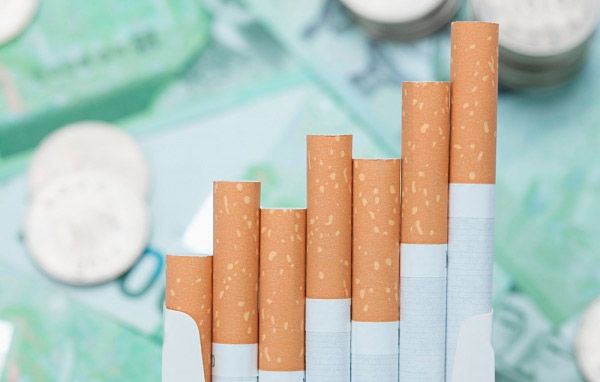New publications
WHO calls for tobacco price increases
Last reviewed: 02.07.2025

All iLive content is medically reviewed or fact checked to ensure as much factual accuracy as possible.
We have strict sourcing guidelines and only link to reputable media sites, academic research institutions and, whenever possible, medically peer reviewed studies. Note that the numbers in parentheses ([1], [2], etc.) are clickable links to these studies.
If you feel that any of our content is inaccurate, out-of-date, or otherwise questionable, please select it and press Ctrl + Enter.
The World Health Organization noted in one of its latest reports that all countries without exception underestimate the increase in the tax rate on tobacco products as an effective method of combating smoking, which leads to high mortality and insufficient funding of health services.
This year's report on the widespread use of cigarettes, particularly in some countries, highlights the importance of raising taxes on tobacco products, despite the fact that more than 30 countries already have cigarette taxes equal to 75% or more of the retail price of a pack, most countries have kept the tax rate quite low, and some have no such taxes at all.
It has already been proven that increasing the tax on tobacco products is the most effective method of combating smoking. According to Margaret Chan, head of the WHO, despite the fact that the tobacco business brings in impressive profits, smoking leads to the painful death of millions of people, so it is very important that the government of all countries realize the need to adhere to this policy.
WHO has developed entire strategies aimed at reducing the demand for cigarettes, such as the MPOWER package, developed in 2008, which has saved millions of lives since its inception.
The report pointed out that not all countries have adopted such a method of combating smoking as raising taxes, which is why all government actions in this regard are reduced to zero. Since 2008, another 11 countries have adopted laws to increase the tax rate on tobacco products and have joined other countries that had already established high taxes on this type of product before 2008 and where the percentage of smokers is low.

The head of the WHO department for combating noncommunicable diseases, Douglas Bantcher, noted that increasing taxes and, accordingly, prices on cigarettes, is an effective method of combating smoking.
Data from China and France clearly show that raising the price of cigarettes leads to fewer people smoking, which in turn reduces the number of smoking-related fatalities.
In addition, the report particularly emphasizes the need to eliminate the illicit distribution routes of tobacco products in order to combat the illegal market.
Taxes from the sale of tobacco products are the main source of funding for the health sector.
The diseases caused by smoking are the most widespread threat to public health. According to statistics, smoking causes diseases that kill approximately 6 million people worldwide each year (one person every 6 seconds). In 15 years, this figure could increase to 8 million if necessary measures are not taken to combat the tobacco epidemic.
In addition, smoking is one of the provoking factors of such non-communicable diseases as cancer, heart and vascular diseases, lung diseases, and diabetes.
In addition, smoking is a cause of early death, especially in low- and middle-income countries.
